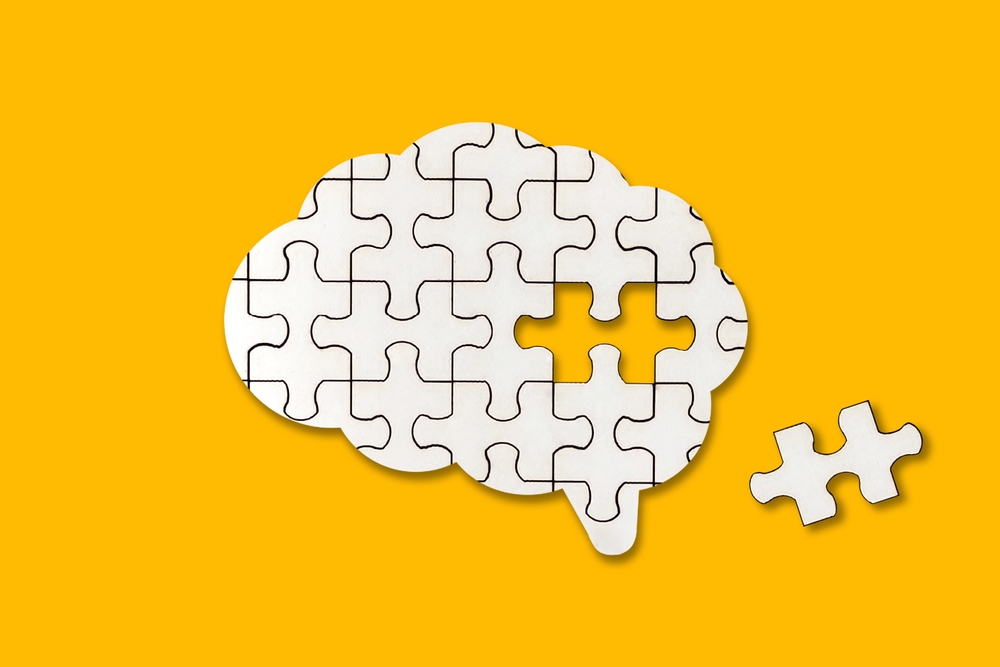In the hustle and bustle of modern life, many of us have felt that unsettling sensation of brain fog—that frustrating inability to focus or think clearly. While it’s easy to chalk it up to a bad night’s sleep or a busy schedule, there are deeper, scarier reasons why brain fog is increasingly becoming a modern malady. Instead of feeling helpless, let’s explore some surprising causes and discover effective ways to combat them with style and savvy.
1. We’re Under Environmental Attack

Many people don’t realize that the environment in which we live can have a direct impact on our mental clarity. Pollutants and toxins found in the air, water, and even household products can accumulate in the body, leading to cognitive issues. These substances can disrupt the endocrine system, which plays a crucial role in regulating mood and cognitive function.
To minimize exposure, consider opting for natural cleaning products and investing in an air purifier for your home. Keeping plants indoors can also help improve air quality by filtering out toxins. Be mindful of what you consume and where it comes from, particularly when it comes to food and water sources. A cleaner environment can contribute to a clearer mind.
2. We’re Digitally Toxic

Our lives are woven into a web of screens. Smartphones, laptops, tablets, and even smart TVs are constantly vying for our attention, leading to what is known as “digital overload,” according to GoodRx. This constant bombardment of information can contribute significantly to mental fatigue and brain fog. The brain can only process so much information at once, and when it’s overstimulated, the result is often a foggy mental state.
To combat this, it’s crucial to implement digital detoxes into your routine—a few hours a day where you disconnect to give your brain a break. Try setting boundaries, like no screens an hour before bedtime or during meals. Engaging in non-digital activities, such as reading a book or going for a walk, can also provide your brain with some much-needed downtime. Remember, balance is key to maintaining a clear mind amid the digital chaos.
3. We’re Sleep Deprived

It’s no secret that a lack of sleep can leave us feeling groggy and out of sorts, but chronic sleep deprivation can lead to persistent brain fog. When we don’t get enough rest, our brains don’t have the opportunity to repair and reset, which is crucial for optimal cognitive function. Adults need between 7 and 9 hours of sleep per night for peak performance.
If you’re struggling to hit that sweet spot, consider implementing a regular sleep schedule, even on weekends. Creating a relaxing bedtime routine can also signal your body that it’s time to wind down—think warm baths, essential oils, or calming music. Avoid caffeine and heavy meals in the hours leading up to bedtime to better position yourself for a restful night.
4. We’re Eating Toxic Foods

What we eat profoundly impacts how we think and feel, and a poor diet can cloud our minds as much as it can clog our arteries. Consuming high amounts of sugar, processed foods, and unhealthy fats can lead to inflammation, which in turn affects brain health. Harvard Medical School highlights the link between diet and cognitive function, emphasizing the importance of nutrients that support brain health.
Incorporating brain-friendly foods like leafy greens, fatty fish, and nuts into your diet can help clear the fog. These foods are rich in omega-3 fatty acids, antioxidants, and vitamins that nourish the brain. Hydration is equally crucial, so make sure to drink plenty of water throughout the day. Eating mindfully and healthily is a delicious way to support mental clarity.
5. We’re Under More Stress Than Ever

Stress is an inevitable part of life, but chronic stress can lead to a state of perpetual brain fog. When we’re stressed, our bodies release cortisol, a hormone that, in excess, can impair cognitive function and memory. Chronic stress can shrink the prefrontal cortex, the part of the brain responsible for memory and learning.
To counteract stress-induced brain fog, consider integrating stress-reduction techniques into your daily routine. Practices like yoga, meditation, or even simple breathing exercises can significantly reduce stress levels. Regular physical activity, such as a brisk walk or a jog, also acts as a natural stress reliever. Remember, finding ways to manage stress is crucial for maintaining a clear and focused mind.
6. We’ve Become Lazy

Sitting is the new smoking, they say, and a sedentary lifestyle can contribute to brain fog too. Lack of physical activity reduces blood flow to the brain, which is vital for cognitive function and mental clarity. According to the Mayo Clinic, regular physical activity increases the production of mood-enhancing chemicals and promotes the growth of new brain cells.
Incorporating even small amounts of exercise into your daily routine can make a significant difference. Take the stairs instead of the elevator, or opt for a standing desk to break up long periods of sitting. Regular workouts, whether at the gym or at home, help keep your body and mind sharp. Remember, a little movement goes a long way toward clearing the mental fog.
7. We’ve Disrupted Our Hormones

Hormones play a pivotal role in regulating brain function, and any imbalance can lead to brain fog. Fluctuations in hormones such as estrogen, testosterone, and thyroid hormones can impact mood, memory, and mental clarity. These imbalances can be caused by stress, diet, or even certain medications.
If you suspect a hormonal imbalance, it’s important to consult a healthcare professional for a proper diagnosis. They may recommend lifestyle changes, dietary adjustments, or supplements to help balance your hormones. Regular monitoring and management can lead to significant improvements in mental clarity and overall well-being. Remember, a balanced body often equates to a balanced mind.
8. We’re Crying Out For Hydration

It’s easy to underestimate the importance of hydration, but even mild dehydration can impair cognitive function. The brain consists of about 75% water, and it needs adequate hydration to function optimally. Dehydration can lead to reduced attention span, impaired short-term memory, and an overall sluggish mental state according to PubMed Central.
To keep brain fog at bay, ensure you’re drinking enough water throughout the day. A good rule of thumb is to drink at least eight 8-ounce glasses of water daily, though individual needs may vary. Incorporate hydrating foods like cucumbers, watermelon, and oranges into your diet as additional sources of fluid. Staying hydrated is an easy and effective way to maintain mental clarity.
9. We’re Vitamin And Nutrient Deficient

Vitamins and minerals are essential for brain health, and deficiencies can lead to brain fog and cognitive decline. Vitamins such as B12, D, and E, as well as minerals like iron and magnesium, play a significant role in maintaining cognitive function. A diet lacking in these nutrients can leave you feeling mentally fatigued and unfocused.
If you suspect a deficiency, consider getting your levels tested and consult with a healthcare provider about supplementation. Eating a varied diet rich in fruits, vegetables, lean proteins, and whole grains can help ensure you’re getting the nutrients your brain needs. Sometimes, a simple tweak in your diet can lead to clearer thinking and improved mental performance.
10. We’re Overmedicated

Many medications come with a laundry list of potential side effects, and brain fog is a common one. Certain drugs, particularly those that affect the central nervous system, can impair cognitive function and leave you feeling mentally sluggish. This is often seen with medications for anxiety, depression, and even some antihistamines.
If you suspect your medication is causing brain fog, consult with your healthcare provider. They may be able to adjust your dosage or prescribe an alternative that has fewer cognitive side effects. Never stop taking a prescribed medication without professional guidance. Communication with your healthcare provider is key to finding a treatment plan that supports both your physical and mental health.
11. We Don’t Get Enough Sunshine

Sunlight is essential for the production of vitamin D, which plays a crucial role in brain health. Insufficient exposure to natural light can lead to low vitamin D levels, contributing to mood disorders and brain fog. During the darker months or if you spend most of your time indoors, this can become a significant issue.
To mitigate this, aim to spend more time outdoors during daylight hours, even if it’s just a short walk. Consider vitamin D supplementation if natural sunlight is limited, especially in the winter months. Light therapy lamps can also be a helpful tool for those in particularly dark or sun-deprived environments. Embracing the light can lead to a brighter, clearer mental state.
12. We’re Being Assaulted By Allergens

Seasonal allergies can be a surprising culprit behind brain fog. When your body reacts to allergens such as pollen or dust, it releases histamines, which can lead to inflammation in the brain and cloudy thinking. This is often accompanied by fatigue and difficulty concentrating, making everyday tasks more challenging.
To combat allergy-induced brain fog, keep indoor spaces clean and free of common allergens. Use air purifiers and regularly wash bedding and clothing. Over-the-counter antihistamines can help, but be mindful of those that may exacerbate brain fog. Consult with a healthcare provider for personalized advice on managing allergies effectively.
13. We’re Victims Of Grind Culture

In our work-obsessed culture, burnout is a badge of honor, but it comes at the cost of mental clarity. Overworking can lead to exhaustion, stress, and ultimately, brain fog. When we don’t allow ourselves time to rest and recharge, our cognitive abilities suffer, leaving us feeling mentally drained and unfocused.
To prevent overworking from clouding your mind, set boundaries between work and personal time. Make time for hobbies, relaxation, and socializing to give your brain a break from constant work demands. Prioritizing work-life balance is not just good for your mental health; it’s essential for maintaining a clear, sharp mind. Remember, you can’t pour from an empty cup.
Natasha is a seasoned lifestyle journalist and editor based in New York City. Originally from Sydney, during a stellar two-decade career, she has reported on the latest lifestyle news and trends for major media brands including Elle and Grazia.


